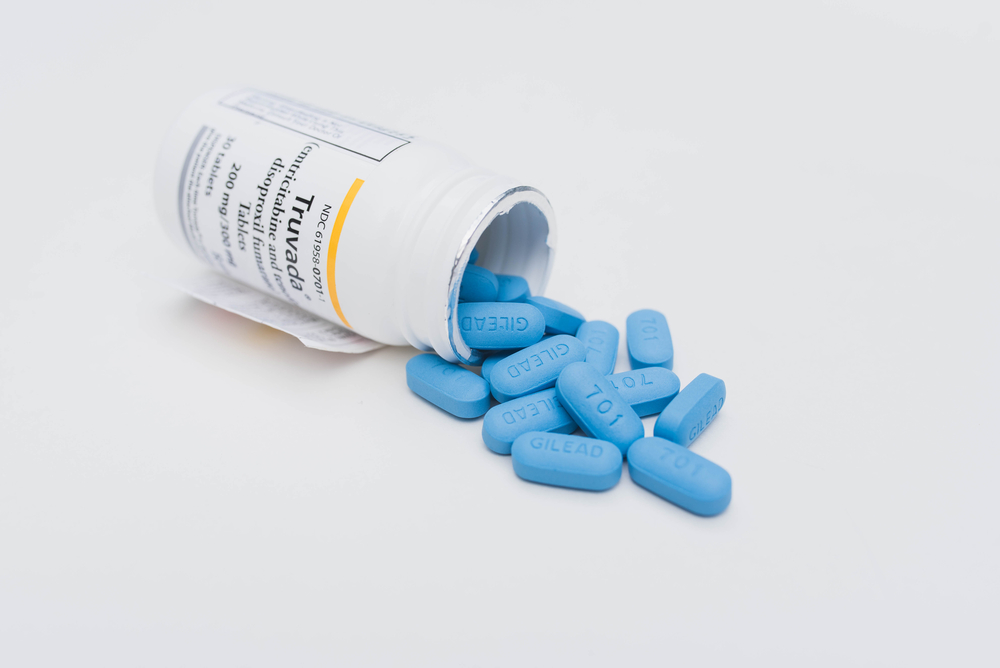How Does PrEP, the HIV-Prevention Medication, Work?

At the 22nd International AIDS Conference in Amsterdam last month, a group of researchers announced that, although their HIV-prevention trial isn't over yet, they know that the treatment is going to be a success. This isn't the first study of its kind to go extraordinarily well; a few years ago, a trial was stopped early because the treatment was obviously working.
Both of these teams were looking at a treatment method called PrEP, which prevents individuals who are at risk of contracting the human immunodeficiency virus (HIV) from getting infected. One version of this treatment, called Truvada, is available in the U.S., and research into other drug-delivery methods is blossoming.
But even though PrEP is meant to fend off infection in case HIV enters the body, PrEP isn't a vaccine. So what, exactly, is it? [5 Dangerous Vaccination Myths]
Although PrEP is associated mostly with HIV management, that acronym — which stands for "pre-exposure prophylaxis" — refers to the prevention strategy of taking medication to stop an infection that's been introduced into the body from taking hold.
It's similar to the technique behind malaria-prevention pills, which people take regularly when they travel to malaria-affected areas, said Dr. Jared Baeten, a professor of global health, epidemiology and medicine at the University of Washington. If someone is traveling to a place where he or she is more likely to be exposed to the malaria-causing parasite, having the drug in the body beforehand makes it harder for the infection to take hold.
The same goes for HIV, Baeten said: If someone's sexual partners are or might be infected, or if they share needles with infected individuals, PrEP could keep them from getting sick.
The PrEP treatment approved in the U.S., Truvada, is a pill containing two drugs, and is meant to be taken daily. The drugs, which were originally developed to treat people with HIV, hang out in the body's T cells, which are a type of immune cell, said Dr. Daniel Kuritzkes, chief of the Division of Infectious Diseases at Brigham and Women's Hospitalin Boston. T cells are the same cells that HIV targets. So, if there are enough of the drug molecules around, they stop the virus from replicating inside the cells — basically terminating the infection before it can proliferate. [27 Devastating Infectious Diseases]
Get the world’s most fascinating discoveries delivered straight to your inbox.
But the Truvada drugs don't stick around in the body for very long, so users need to take the pill regularly, Kuritzkes told Live Science.
Research teams are working on other PrEP options, too — including injections, intravaginal rings and implants. As with birth control, plentiful options mean there's a strategy for every patient, Baeten told Live Science. Some people might want something they don't have to remember, or would prefer no one see them popping a preventive pill every day, he noted. "That's part of the beauty of trying choices," he said. "Everyone gets something that works."
The PrEP vaginal ring is almost done with the trials needed to make sure it works and is safe, and the PrEP injection might be three years away from becoming available, Kuritzkes estimated. Implanted devices are even farther away, he added — maybe five to seven years.
Baeten said that he expects that these other options will have rare and minor side effects, and Kuritzkes agreed that this will hopefully be the case. Otherwise-healthy people won't take preventive medications if the drugs make them sick, Baeten noted. There's also no way to "undo" the effects of a long-lasting injection once it's given, Kuritzkes said, so the injection form, in particular, needs to be understood very well.
Truvada could make people a little nauseated at the start, and some patients might see a drop in bone density. But this latter side effect hasn't led to an increase in bone injuries in any clinical studies, Kuritzkes said, and regular bone strength returns if patients come off of the medication. In extremely rare cases, liver complications might come up, too.
As researchers tinker with new PrEP methods, some teams are improving Truvada — for example, by modifying one of the two drugs so that it has less of an impact on bone density. But even with these improvements, there's only one way to make sure PrEP does its job: People need to see their doctors, and doctors need to ask about their patients' sex lives, Kuritzkes said.
Men, in particular, are less likely to visit physicians, even though men who have sex with other men are one of the groups at the highest risk for contracting HIV. And primary care physicians, the doctors who most often give checkups, have to ask healthy patients about their sex lives to see if they might be candidates for PrEP, Kuritzkes said.
"PrEP is only useful if people are prescribed it," he said.
Originally published on Live Science.
 Live Science Plus
Live Science Plus





